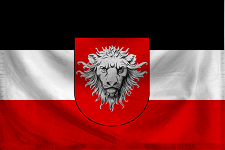

![]() by The Kingdom of Apilonia » Tue Sep 22, 2020 2:53 am
by The Kingdom of Apilonia » Tue Sep 22, 2020 2:53 am

![]() by Freistaat-Ostafrika » Sun Sep 27, 2020 11:20 am
by Freistaat-Ostafrika » Sun Sep 27, 2020 11:20 am

![]() by The Kingdom of Apilonia » Tue Sep 29, 2020 1:34 am
by The Kingdom of Apilonia » Tue Sep 29, 2020 1:34 am

![]() by The Kingdom of Apilonia » Sat Oct 03, 2020 4:04 pm
by The Kingdom of Apilonia » Sat Oct 03, 2020 4:04 pm

![]() by The Kingdom of Apilonia » Sun Oct 04, 2020 2:27 pm
by The Kingdom of Apilonia » Sun Oct 04, 2020 2:27 pm

![]() by Freistaat-Ostafrika » Mon Oct 05, 2020 8:32 am
by Freistaat-Ostafrika » Mon Oct 05, 2020 8:32 am

![]() by The Kingdom of Apilonia » Mon Oct 05, 2020 2:46 pm
by The Kingdom of Apilonia » Mon Oct 05, 2020 2:46 pm

![]() by Freistaat-Ostafrika » Wed Oct 07, 2020 3:10 pm
by Freistaat-Ostafrika » Wed Oct 07, 2020 3:10 pm

![]() by The Kingdom of Apilonia » Fri Oct 09, 2020 4:21 pm
by The Kingdom of Apilonia » Fri Oct 09, 2020 4:21 pm

![]() by The Kingdom of Apilonia » Thu Oct 15, 2020 6:16 am
by The Kingdom of Apilonia » Thu Oct 15, 2020 6:16 am

![]() by The Kingdom of Apilonia » Fri Oct 16, 2020 11:30 am
by The Kingdom of Apilonia » Fri Oct 16, 2020 11:30 am

![]() by The Kingdom of Apilonia » Mon Nov 23, 2020 4:56 pm
by The Kingdom of Apilonia » Mon Nov 23, 2020 4:56 pm
Advertisement
Return to International Incidents
Users browsing this forum: The United Socialists of Germany
Advertisement